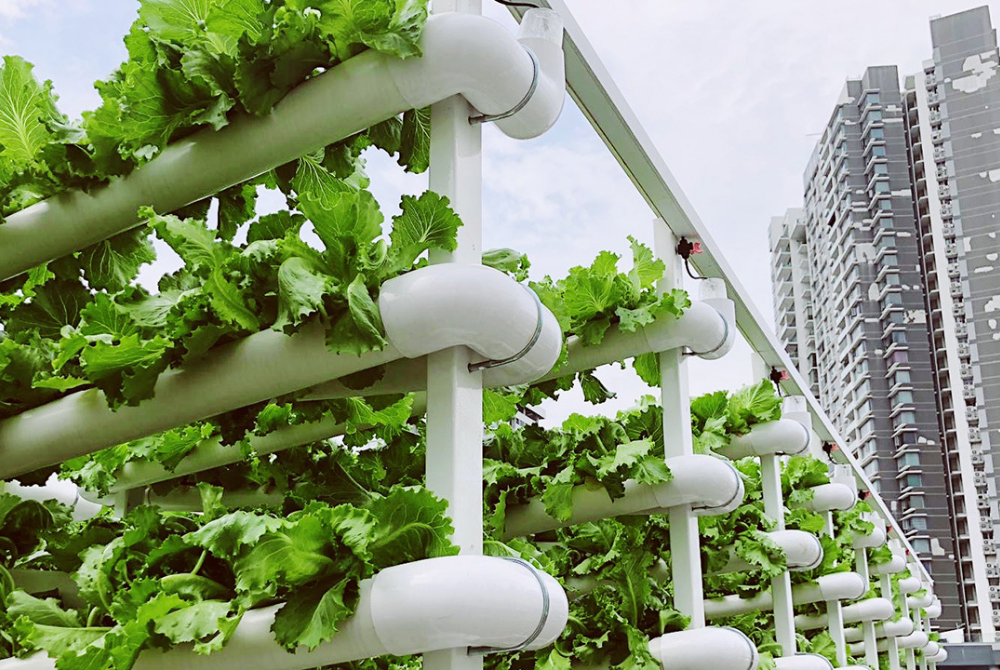Blog Details
Home > Our Blog > URBAN FARMING IN INDIAN CITIES: AN ANALYSIS OF BENEFITS AND CHALLENGES

URBAN FARMING IN INDIAN CITIES: AN ANALYSIS OF BENEFITS AND CHALLENGES
Urban farming is a process of using innovative scientific techniques to produce high yield and high quality of fresh organic food in very limited urban areas like terrace and balconies all year round.
Urban farming is seen to have many advantages including
- non dependence on various climates
- use of kitchen waste material
- use of sewage and treated water and wet wasteas compost which leads to reduction of carbon footprints
Urban farming has a significant role on in urban environmental management as it can impact urban heat island effects and function as an urban lung in addition to providing visual appeal. It has gained a new significance due to the present trend of rapid urbanization around the world. In India, the share of urban population was only 30% in 2010, a report by UNDP estimates that this will increase to 40% in 2030 and over 50% by 2045. However, areas under cultivation increase by just a miniscule 2% yearly in comparison to the urban growth. [i] Further, with rapid urbanization, the agricultural fields are not only reducing but also going far away from cities, i.e. the end consumers. For daily requirement of fresh vegetables, vegetables travel 30 to 100 Kilometre (KM) before they reach the hands of ultimate consumers. This involves a lot of cost and exploitation of natural resources for transportation.
[ii] Urban agriculture is identified as one of the solutions with the potential to minimise these problem and provide multiple benefits in addition to producing fresh veggies and fruits. [iii] Technology, with all its wonders, has made farming possible in small spaces through vertical farming and hydroponics.
[iv] A few research paper finds that growing food enhances knowledge of food utilization, for instance, cooking and preserving vegetables. Further, there is a positive relationship between those who have grown food and produce consumption. [v] However, there has been hardly empirical study done on benefits of urban farming in Indian cities and challenges involved for the urban growers.
Thus, this research is an initiative to bring out the awareness about urban farming that struggles to strengthen its roots in urban India. This research aimed to analyse motives behind participation in urban farming in India (eg.rooftop/ home/ community farm or garden to produce vegetables, fruits, edible flowers and herbs). The study also intended to investigate kinds of health/economic/environmental benefits people with rooftop farm/ balcony farm/ community derived. The paper also examines impact of technology and social media on adoption of urban farming in city dwellers in India. This research also focuses on the challenges of urban farming in urban India. The findings of the study shall bring out societal views on urban farming and the suggest ways to overcome the hindrances and facilitate the people towards utilizing the opportunities of urban farming with its benefits.
The study was conducted during June and July, 2021 amid the COVID-19 in all cities and towns in India among people who were practising urban farming. The snowball sampling method, through which respondents give further contacts, was used to reach a variety of actors in Urban farming practices in Indian cities and towns. We used social media platform such as LinkedIn and Facebook to collect the data. The online survey, both closed and open ended questions, was conducted using google form among 80 participants across Indian cities and towns. The demographic characteristics considered were gender, age, educational attainment, employment and years of work experience.
To understand the motivation behind taking up urban farming among people living in Indian cities and towns multiple response analysis was employed. Out of 80 respondents, 1 did not select any of the options given as motives. There were 79 respondents who selected at least one of the 5 options) to the question on motivation. The study findings revealed that vast majority of the respondents (79%) turned to urban farming due to the access to fresh & pesticide-free veggies, fruits and herbs. Thus, access to fresh & pesticide-free veggies, fruits and herbs topped the motivational factors followed by perception of improved nutrition (44%). The findings of the study further revealed that other motivation for the urban people were desire to reduce waste generation through composting of one’s wet waste (35%), the perceived prevalence of pesticide-laden food in the market (14%) and fear caused due to fresh produce supply chain disruption during Covid-19 lockdown (3%).
*Credit goes to respective owners:
